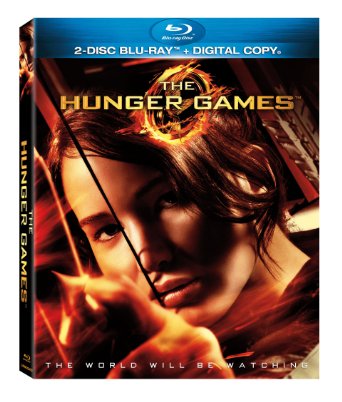The Hunger Games
Reviewed by Donald T. Williams, Ph. D.
[This review originally appeared in Mythprint 49:4-5 (#357-358) in April-May 2012.]
SPOILER ALERT
I have not read the books, so this is only about the movie. When I saw the trailers, I thought, “Why would anyone want to expose himself to two straight hours of ‘Reality TV?’ I can’t even stand thirty minutes of it.” But then I noticed that people I respect were crazy about the books, so I decided to give it a shot.
It was a good decision.
Every single element in The Hunger Games is derivative, but the combination manages to be original. It is Survivor meets The Fifth Element meets “The Ones Who Walk Away from Omelas” meets a medieval morality play meets 1984. Surprisingly, it works.
Some Christian reviewers have complained about the violence or about the inherently compromising morality of the premise: our heroine is in a game where the only way to survive is to murder other people. But the violence is not glorified and the immoral premise is not praised; rather a society that accepts the murder of children as (a) entertainment and (b) the price of peace is held up to critique. You get a nice opportunity to ponder the shallow manipulations of media while you’re at it.
Ironically, the moral ambiguity of the ending is the very thing that makes the story disturbing (in a potentially productive way) and profound. Katniss and her friend from District 12 are the last two combatants left. They have managed to do their necessary killing in self-defense, and they have wanted somehow to make it through the games with their integrity intact—not to be turned into someone else by the experience. Now one of them must kill the other, but this they refuse to do. So they make a mutual suicide pact: they will eat poisoned berries and both die rather than give the media circus they have been part of the winner (on its own terms) that it desperately wants. It would have been a striking act of protest against the immorality of the whole affair. But at the last minute, the judges decide to accept two winners: they both get to live! Stunned, they accept this offer before they realize what it means. And that is what makes the story more than just another violent action flick.
Here’s the problem: they have been given life, but by accepting it, they have put themselves in the position of having to live it on the game’s terms. Words are put in their mouths by the slick announcer who interviews them afterwards. Instead of making the suicide pact because they refused to murder a friend, they are portrayed as having made it because they were in love and could not face life without each other. They are confused and dazzled by what has happened to them. They hardly realize that they are probably going to live to wish they had eaten those berries. They are just kids who were offered life in a moment of sudden choice. Who could blame them for taking it? Yet by doing so they have suffered the very fate they had wanted to avoid: loss of identity. Their lives will now be scripted according to the roles created for them by the media. When they smile at the crowd and raised their hands together, I suffered a chill I have not felt since Winston realizes at last that he loves Big Brother.
This is a story, not a sermon. It raises questions to which it may not have answers. But they are questions that desperately need to be asked, and especially by contemporary Americans. What do you do when you dwell in a society that lives by the murder of innocents? How do you maintain your integrity in a society whose major mode of operation is the manipulation of images? If The Hunger Games just makes you less comfortable with living without the answers, it will have performed a very useful service.
The Hunger Games. Directed by Gary Ross. Lionsgate, 2012. Based on the novel by Suzanne Collins.

